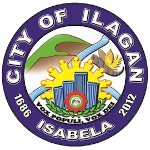Ilagan Day in the Philippines Date in the current year: May 4, 2026
 Ilagan Day (Aggaw na Ilagan) is a special non-working holiday in the city of Ilagan, Isabela, Philippines. It is celebrated annually on May 4 to commemorate Ilagan’s founding anniversary.
Ilagan Day (Aggaw na Ilagan) is a special non-working holiday in the city of Ilagan, Isabela, Philippines. It is celebrated annually on May 4 to commemorate Ilagan’s founding anniversary.Ilagan is a first-class component city in the Philippine province of Isabela. It is the most populous city in the province and the provincial capital, as well as the largest city by land area on the island of Luzon and the fourth largest city in the country after Davao City, Puerto Princesa, and Zamboanga City.
During the pre-colonial era, its native settlers called the settlement Bolo. It was one of the most populous settlements in the area and the site of an important tobacco plantation. The name Ilagan is thought to derive from an inversion of the Ibanag word nagali, which can be translated into English as “transfer” or “move”. It was named so after the town’s relocation to the present site due to economic and security reasons. Another version claims that the name derives from the Ibanag world laga, which means “smallpox”, after a smallpox breakout that occurred shortly before the town’s official founding.
The first European to set foot in the area was Captain Juan Pablo Carreon, who was sent by the Spanish governor-general to explore Cagayan Valley in 1581. Dominican friars established a settlement near what is now Ilagan in 1619. The natives did not like the economic and social regulation imposed by the Spanish and revolted. They burned the church and houses and abandoned the settlement.
In 1678, the natives, who had by that time long been pardoned for the revolt, began to rebuild the settlement on the other bank of the river with the help of Friar Pedro Himenes. The Dominicans accepted it as an ecclesiastical mission and named the settlement San Fernando de Ilagan. Ilagan was officially founded as a town on May 4, 1686, and became the capital of Cagayan Valley.
In 1856, Ilagan was designated as the capital of the newly founded province of Isabela. It remained the provincial capital after the reorganization of the province by the Americans in 1901. During World War II Ilagan, like the rest of the Philippines, was occupied by the Japanese; it was liberated by the U.S. and Philippine forces on June 19, 1945.
Ilagan first began to seek cityhood in 1998, but the majority of the residents voted against it in the plebiscite that took place on March 14, 1999. In 2005, the bill seeking to convert the town into a city did not pass the senate. Ilagan renewed its bid for cityhood in February 2012 and was proclaimed a city on August 11, when the majority of its residents voted “yes” in the plebiscite.
Ilagan Day is a citywide festival celebrated every on May 4 to commemorate the city’s founding anniversary. It was first designated as a special non-working holiday in September 2002. The celebration is filled with festive events and activities that promote local pride and the rich cultural heritage of Ilagan. They include cultural performances, pageants, parades, sports competitions, and other celebrations.
Ilagan Day should not be confused with Ilagan City Charter Day. The latter is a special working holiday observed on August 11 to commemorate the day when Ilagan was granted cityhood in 2012.
- Category
- Anniversaries and Memorial Days
- Country
- Philippines
- Tags
- Ilagan Day in the Philippines, holidays in the Philippines, special non-working holidays, regional observances